I checked the RAM usage from both PixelFormats.
RGB8
Only uses frame.get_buffer()
It just allocates once a buffer:
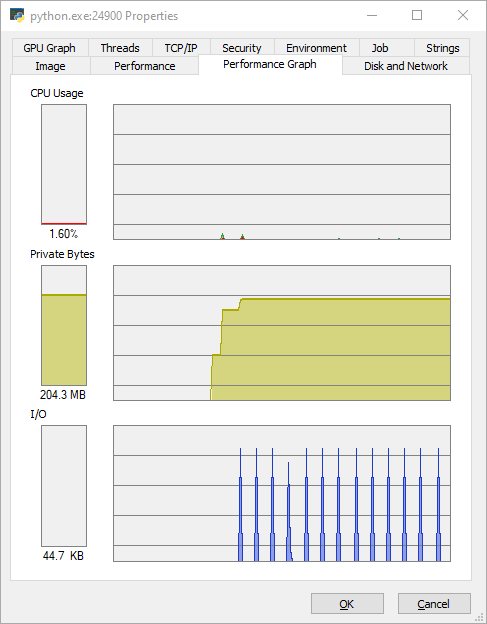
BayerRG8
Uses frame.convert_pixel_format(PixelFormat.Rgb8) before frame.get_buffer()
It increases every time a frame is received (6th frame faulty, 9th/10th frame crash of FrameHandler):
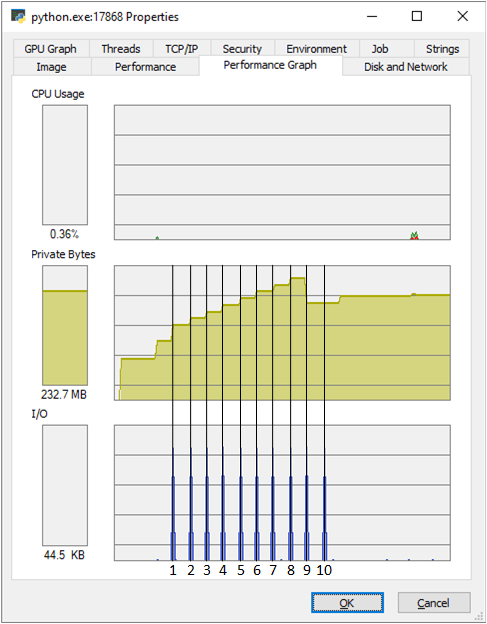
Is this a python bug or a Vimba SDK bug?
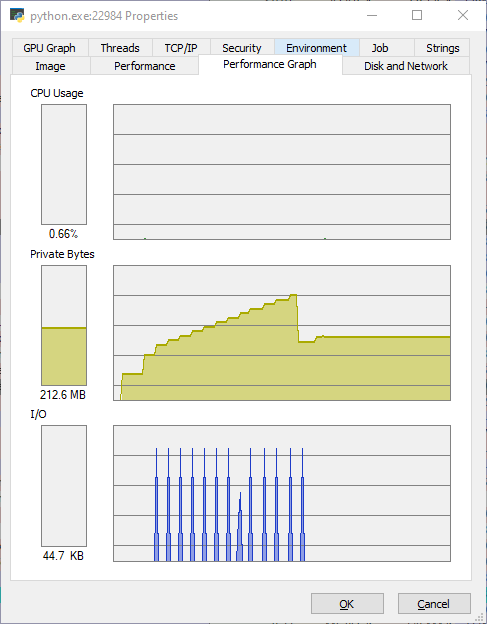
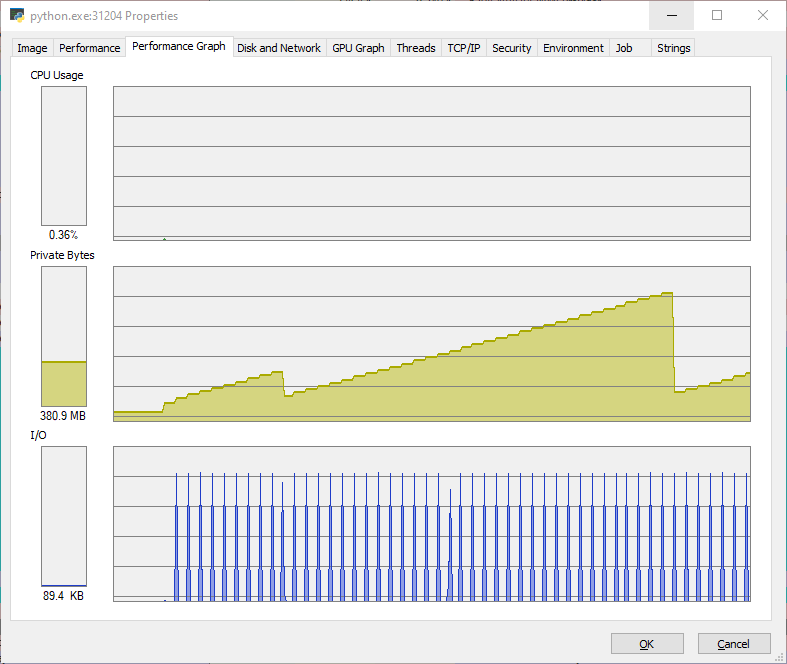
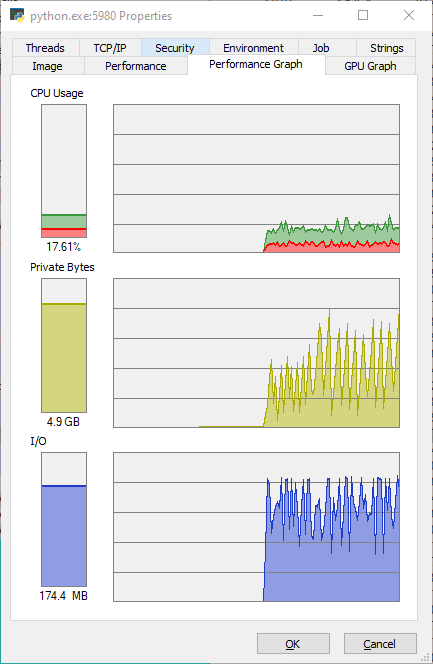
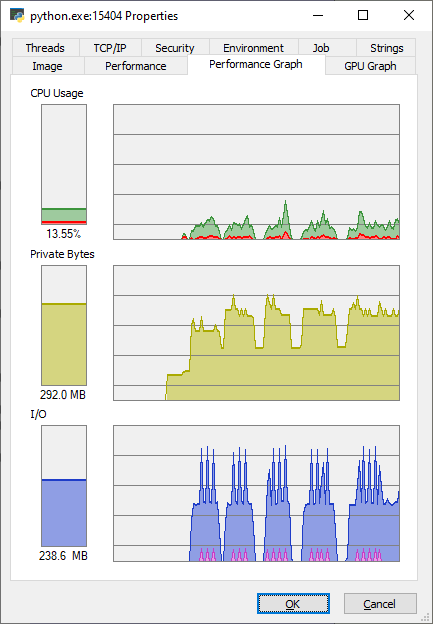
I started with the development of a GUI application with PySide2 together with VimbaPython using PixelFormat
RGB8. I did 72h tests capturing RGB8 frames with 12 fps without any problems.After switching to
BayerRG12the FrameHandler processes 5 correct frames, but at the 6th frame the conversion is faulty, probably because offrame.convert_pixel_format(PixelFormat.Rgb8)and after the 9th frame, no frames were captured anymore and sometimes the application crashed.Is this a bug or how can I deal with it?
FrameHandler
Environment